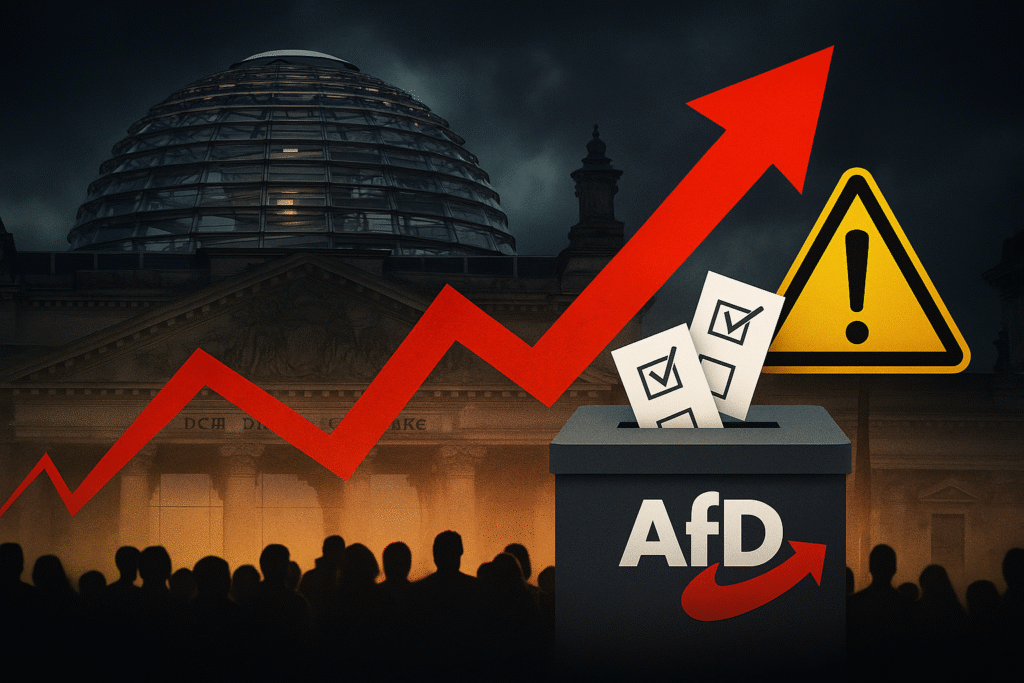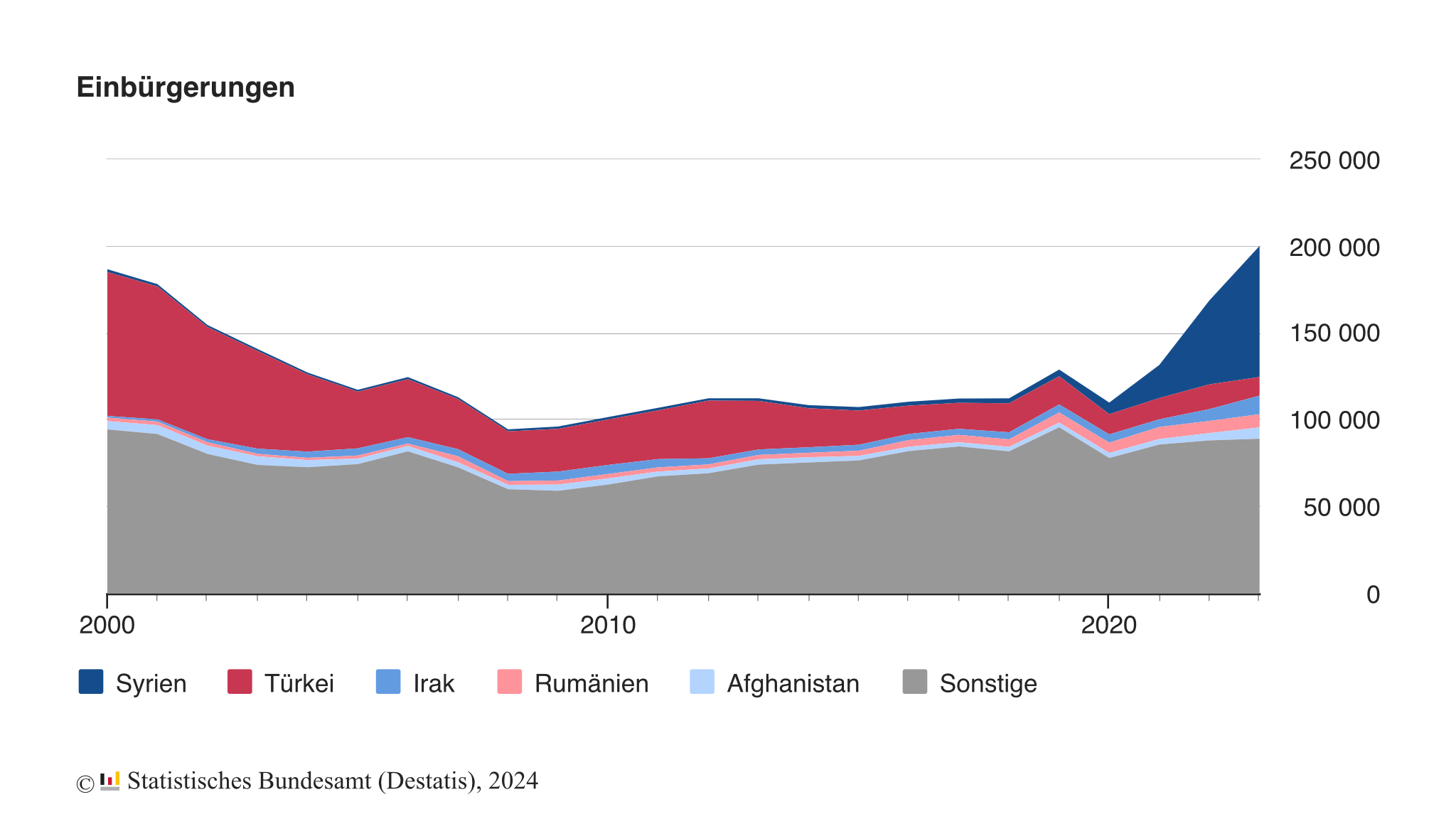
Last year, more than 270,000 people packed their bags and left Germany the highest number in recent years. Behind every departure is a story: families searching for opportunity, workers facing economic pressure, or internationals questioning whether Germany still feels like home. For anyone living, studying, or working here, this trend raises big questions. Will migration rules tighten? Will job markets shift? And how might this shape the atmosphere in classrooms, offices, and neighborhoods?
🎥 Want the full breakdown? Watch the video here
What Does the AfD’s Surge in the Polls Mean for You?
At the same time, politics in Germany are shifting rapidly. In Saxony-Anhalt, the AfD has reached 39% in the polls, and across the country they’ve climbed to 25% their highest rating ever. For internationals, this isn’t just another statistic. Rising support for far-right parties can influence local attitudes, policies on migration, and even the sense of belonging many of us feel in everyday life. Whether you’re applying for jobs, raising a family, or building a long-term future in Germany, these numbers matter.
How Safe Are German Schools Today?
The headlines turned even more unsettling when a 17-year-old student attacked his teacher with a knife, forcing police to step in. Thankfully, no lives were lost but the incident sparked widespread concern about safety in schools. For parents, it’s a chilling reminder that Germany is not immune to the kinds of tragedies often seen elsewhere. For students and teachers, it raises urgent questions: How secure are classrooms? What support systems exist? And what role should schools play in spotting early warning signs?
Why Is Bavaria Returning to a 9-Year Gymnasium System?
If you have children in school, you’ll want to pay close attention to this. Bavaria is scrapping the G8 system (8 years of gymnasium) and moving back to the traditional 9-year track. On paper, it sounds like a win: more time for students, less academic pressure. But here’s the catch schools are already struggling with overcrowding and staff shortages. For families, this means more uncertainty: Will classrooms become even more packed? Will the quality of education improve or decline?
What Do These Changes Mean for You?
Politics, migration, education, and safety four very different stories, yet all pointing to the same reality: Germany is changing fast. If you’re an expat, student, or professional, the best way to stay ahead is to stay informed. These shifts affect not just the policies you read about in the news, but the lived experience of everyday life from finding an apartment to sending your kids to school.
👉 Click here to watch the full video recap on YouTube


